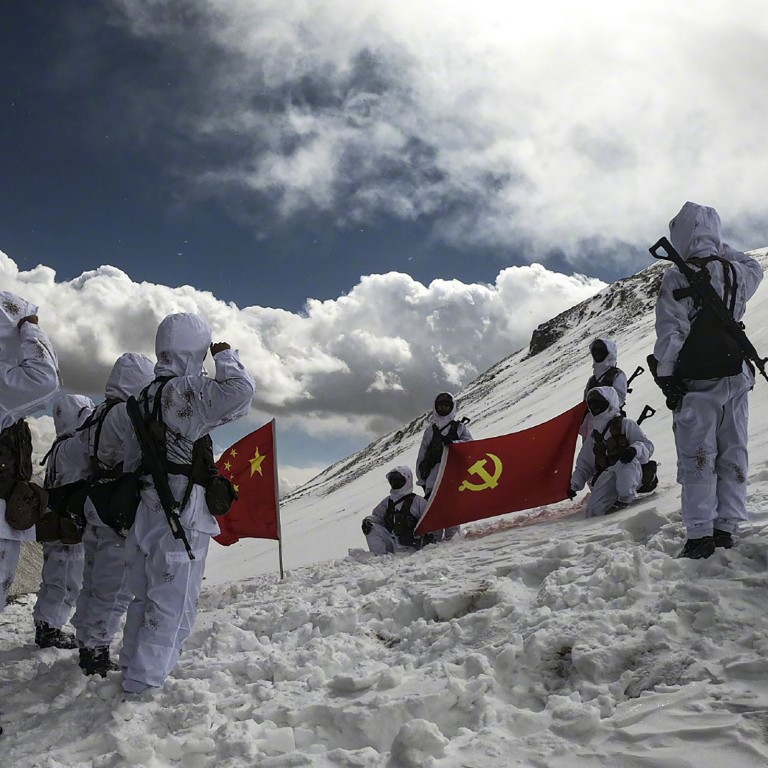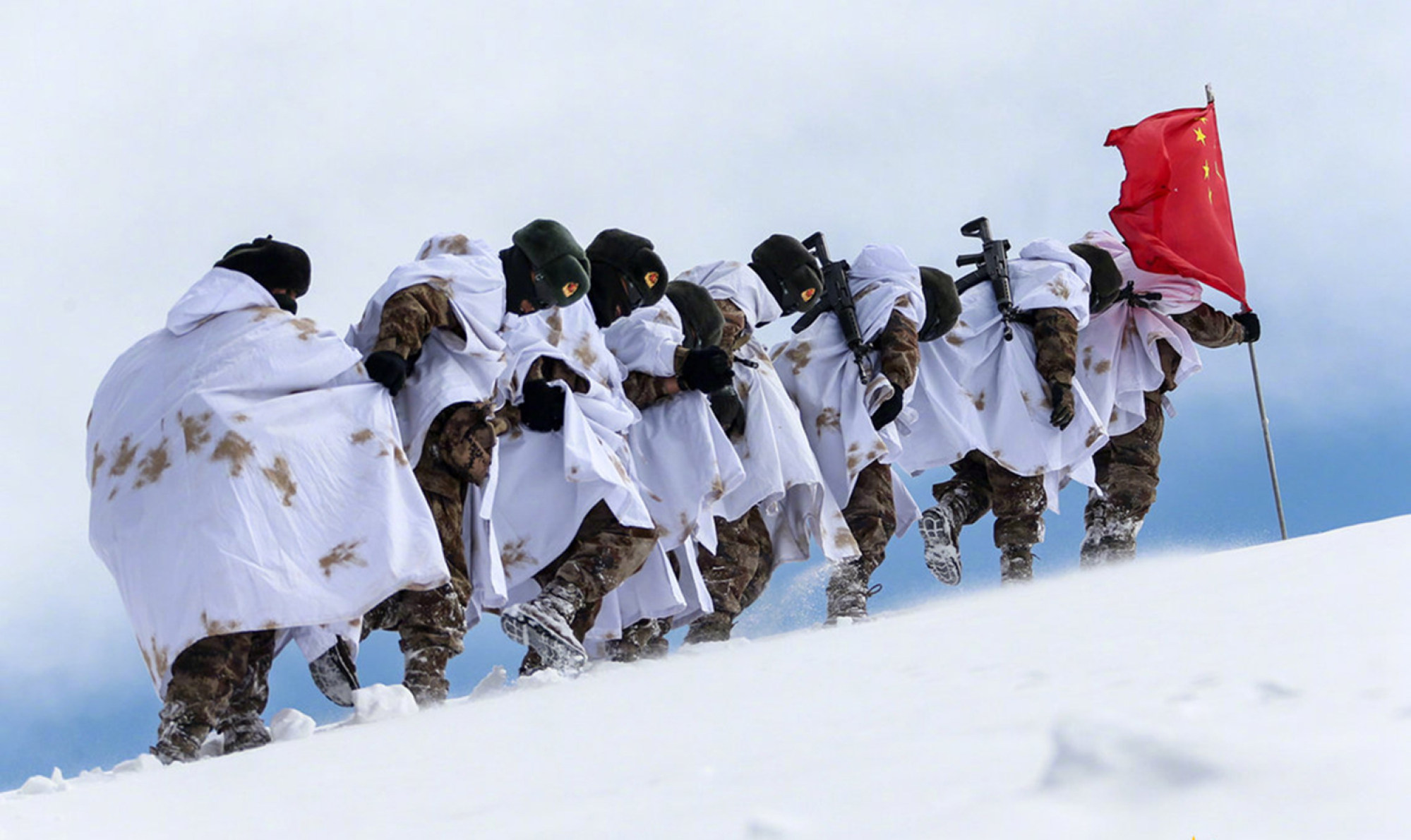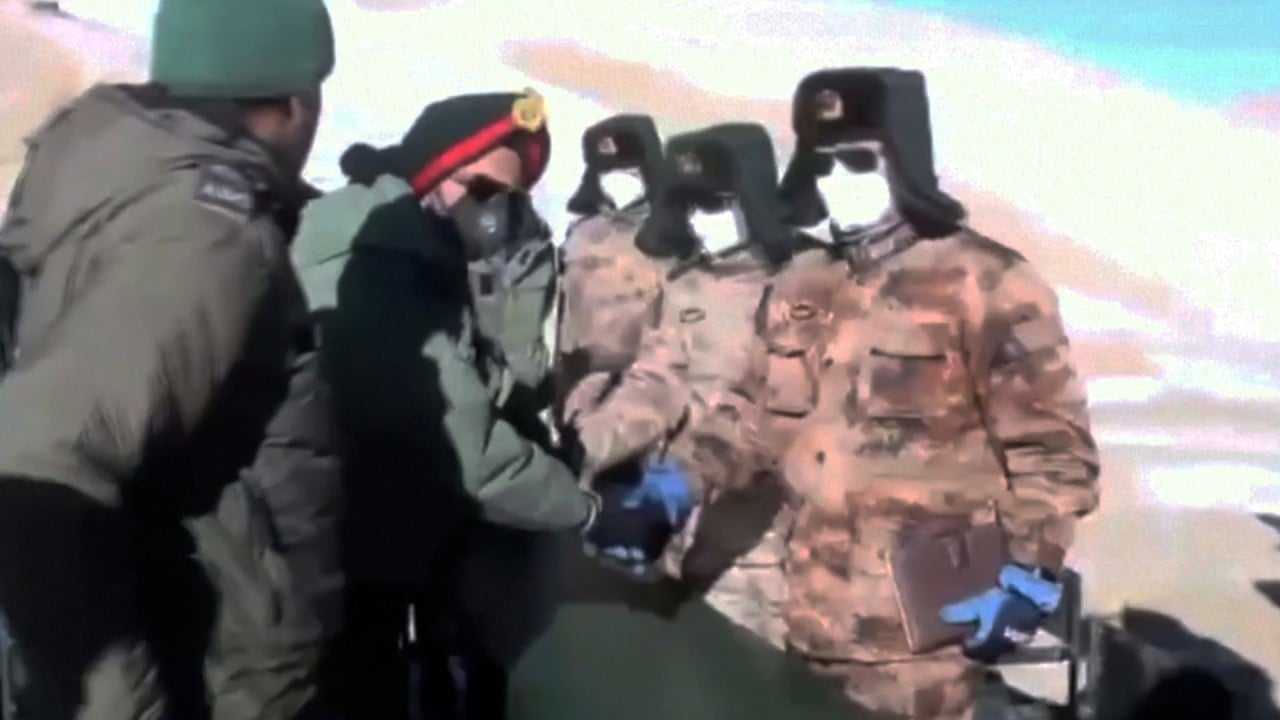
Chinese soldiers given tips on how to prevent altitude sickness
- Guidelines for troops serving at high altitude will help keep them ready for combat, analyst says
- ‘Altitude sickness is a common problem that has been affecting troops stationed on the plateau for a long time,’ army officer based in Xinjiang says
One of the problems was that the early symptoms of altitude sickness were not too serious so soldiers tended to ignore them, the person said. But if it progressed it could result in them being unable to do their jobs.
So to ensure their soldiers do not become incapacitated, the commanders of an army division serving on the plateau came up with a multi-point plan to keep them safe.
The advice is to drink lots of water, use sanitising wipes after eating and going to the bathroom, avoid overeating and breathe pure oxygen for an hour a day, the report said.
The recommendations were drawn up with the help of doctors, it said.
“Because of the guidelines, officers and soldiers in the division are gradually developing good habits to prevent altitude sickness, and some of the milder symptoms that used to happen at the start of an exercise no longer do,” the officer said.
Guo Lei, a doctor in the army division, said the guidelines were useful and had reduced the incidence of altitude sickness among the troops.
Song Zhongping, a former PLA instructor, said they would help to ensure Chinese troops stationed at high altitude were always ready for combat.
“Chinese soldiers come from all parts of China and it’s not easy for some of them to quickly adapt to the high plateau environment,” he said.
“These new guidelines can be effective in sustaining combat ability during hard times.”

Altitude sickness is the harmful effect of high altitude caused by rapid exposure to low amounts of oxygen. People respond in different ways but typical symptoms include headaches, vomiting, fatigue and dizziness. In the worst cases, the lack of oxygen can result in a cerebral oedema – a swelling of the brain that is potentially life threatening.
Chinese soldiers serving in the Himalayas between China and India have been known to lose their way after experiencing altitude sickness.


